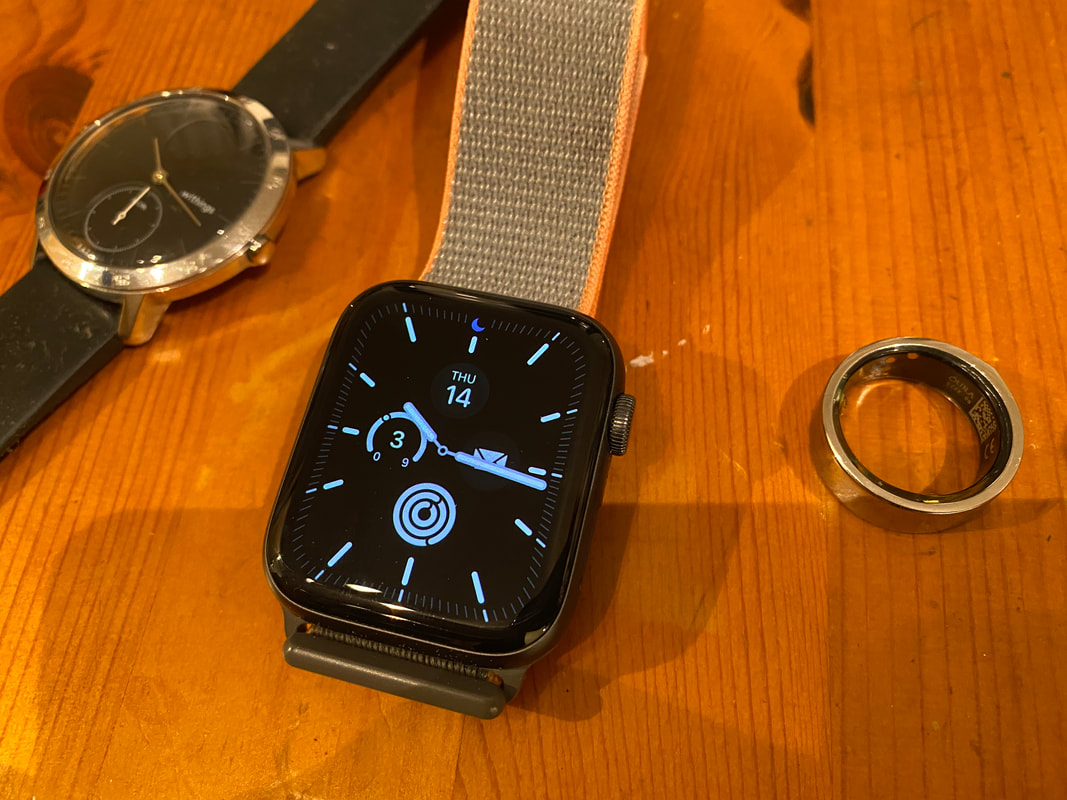|
A personal trainer gives you instructions on what to do at the gym. In most cases, she or he asks only basic things from you, like your target, to either lose weight or grow muscles, and maybe how often you have visited the gym before. A growing group of wellbeing consultants tell you, how to sleep, eat and work better. They might ask you to keep a sleep and food diary. These days, people have more and more wearable devices to measure daily activities, heartbeat, sleep, blood glucose and many other things. But there is still a very weak link between data, wellbeing and training services. However, this will change.
I have read about sleep consultants whose primary task is to teach people to repeat some words when they try to sleep. They say it helps you to relax and sleep better. However, people nowadays have several devices that measure their sleep, heart rate when they go to sleep, sleep intervals, even body temperature and how tough their day has been. Wouldn’t it be better if those sleep consultants could utilize your data, and not only teach mantras? During the COVID lockdown, many fitness centers were closed. They started to offer online services, including virtual personal trainer sessions, online exercise classes and videos on how to train at home. But this is mainly one-way communication. The fitness center doesn’t take your data to create a more personalized plan for you. Why not? Technically it would be quite feasible, but they would have to develop new services for this model. Many customers would be ready to pay more for personal services than standard classes. The world is full of services to lose weight. People pay for online services to get instructions for daily eating and exercising. Some services help track your calories when you record your daily food entries. Most services are still elementary and don’t use data available from wearable devices. Nowadays, you can even track blood glucose in real-time. It would be quite useful with exercise, heart rate and sleep data for personal weight control services. The wearable market is increasing. The smartwatch market, in particular, is growing steadily, approximately 20% annually based on market research and is expected to reach almost $100 billion by 2027 from $150 billion this year. Smartwatches take market share from some other early devices that only measured steps and heart rate data, basic things. At the same time, new categories are growing, like smart rings (e.g. Oura) and blood glucose, metabolic health apps (e.g. Levels and Veri). Withingswas part of Nokia for some years, but Nokia sold it back to its founders and wrote it off, just when the market started to grow. It is a company that has a more extensive range of products from watches to digital blood pressure and under-mattress sleep tracking equipment. So, people are starting to gather a lot of personal data. But many people are still confused, how to utilize this data. Apple Health is a service that helps combine data from several devices if you have an iPhone. But it is probably the most confusing and worst UX product Apple has. As with business data, people need tools to utilize the data, and raw data is hard to understand. There are also other health data sources. DNA tests offer information on personal genetic profiles. Digital health care records are starting to become available in some countries. This data could also be combined with wearable data. This sounds like a perfect match. Wellbeing services should start to become more personal and based on real data, not only some standard instructions, because people are, in fact, individuals and different. Wearable devices provide more and more data points that are hard to interpret. Both those parties could improve their businesses if they learned to utilize the other party’s services better. How can this happen in practice? There are, at least, three ways to do this:
Any professional business consultant usually analyzes a company’s numbers and processes before starting to give instructions. It would be bizarre to have a consultant that would try to get a company to better health, without looking at its existing data. But in wellbeing consulting it is still very typical. This will change in the next few years, and we’ll see wellbeing services based on actual personal data. And this market will grow fast; people are ready to pay for better overall health and wellness. The article first appeared on Disruptive Asia. |
AboutEst. 2009 Grow VC Group is building truly global digital businesses. The focus is especially on digitization, data and fintech services. We have very hands-on approach to build businesses and we always want to make them global, scale-up and have the real entrepreneurial spirit. Download
Research Report 1/2018: Distributed Technologies - Changing Finance and the Internet Research Report 1/2017: Machines, Asia And Fintech: Rise of Globalization and Protectionism as a Consequence Fintech Hybrid Finance Whitepaper Fintech And Digital Finance Insight & Vision Whitepaper Learn More About Our Companies: Archives
January 2023
Categories |





 RSS Feed
RSS Feed
